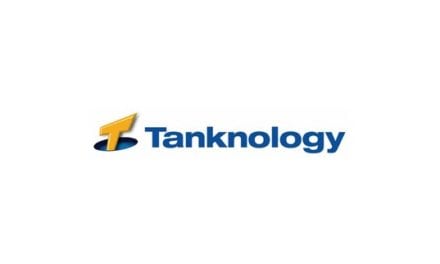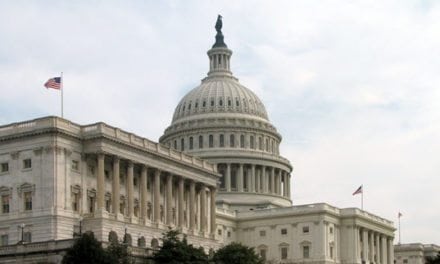Fourteen predictions for the next 12 months of convenience retailing.
By Roy Strasburger
As the summer matures, the initial aftermath of the COVID-19 pandemic has seen shuttered businesses, a battered stock market, mounting job losses, a newly declared recession and a great deal of uncertainty about the future.
At StrasGlobal c-stores, gasoline volumes are down about 50% compared to last year, and store sales are about 75% of normal. Customer counts are down but the average purchase is up. And word is spreading about businesses and convenience stores that are closing on a permanent basis.
Outside the convenience channel, the businesses that have successfully navigated the pandemic so far have been grocery stores and online delivery services such as Amazon, FedEx and UPS.
As states relax stay-at-home restrictions, non-essential businesses are allowed to open as long as they follow certain conditions: curbside or to-go service only, social distancing, face masks for employees, and restaurants limited to no more than 25% to 50% of their maximum occupancy level. So, as the crisis phase of the COVID-19 pandemic ends, where do we go from here? These are some of the things that the next 12 months could bring:
- The recession, which economists say began in February, will last for at least the next two quarters. Businesses that were closed will be slow to reopen—and many will not reopen at all. Unemployment will stay above pre-COVID levels. The stock market will be choppy as production falls due to global supply chain issues and reduced consumer buying power. Available funding to start new businesses will be very limited, so few new jobs will be created.
- Although we are not out of the current pandemic, expect another wave in the fall as more businesses open and people lower their health precautions due to “social distancing fatigue.” There may be another round of shelter-at-home restrictions.
- Health-care systems are going to remain under pressure as people who needed non-urgent medical procedures or want elective ones start entering the system after having waited for the COVID-19 crisis to pass.
- Fuel gallons will remain significantly below last year’s performance. This is because more people will be working from home and commuting less; high unemployment rates will mean that more people are out of jobs and will not need to commute; road trips and vacations will be curtailed; and, due to the recession, people will be careful with how they’re spending their money.
- Convenience store sales will return to near-average levels, although customer counts will remain 10-15% lower than last year. People will be spending more money online and trying to reduce their in-person interactions.
- Average in-store c-store transactions will be 15-20% higher. Customers will continue to shop in anticipation of future restrictions (such as staying stocked up on toilet paper). They will also be trading up to the next level of product. In past recessions, we have seen customers gravitate to small luxury items such as craft beer, wine and chocolates because they are perceived to be affordable luxuries and are impulse purchases.
- Health and safety will continue to be a major customer concern. People are not going to forget the impact of COVID-19 anytime soon. Customers will expect retailers to maintain high levels of infection prevention and safety in their stores. Safeguards such as sneeze guards, social distancing and deep cleaning of stores will be expected and should be promoted by the store. Employee masks and gloves may become a permanent feature in stores (as we have seen in Asia over the past decade).
- Get ready—there will be more regulations involving health protection, employee rights and employee sick time provisions. Expect more health-related permits and certifications that will be applicable to your store and your employees. We are fortunate that we have developed a software program, Compliance Safe (www.compliancesafe.com), that allows us to track and manage all of our permits and licenses. It has been very helpful in reminding us which permits need to be renewed while the local authorities have been shut down and, by centrally storing them in the cloud, allowed us to have easy remote access to all of our permits and licenses without having to go to the store or office.
- Customers will expect an enhanced online experience when shopping at a convenience store. Whether it is home delivery or curbside pickup, online ordering will become expected.
- Store employees are going to expect more from their employers in regard to health protection and sick time. The COVID-19 pandemic has exposed huge gaps in the American health-care system, and either the government or employers are going to need to fill the gap to attract quality employees.
- Convenience stores will become more like local supermarkets. The categories for groceries, dairy and fresh produce will expand as customers shop closer to home and seek to avoid the social distancing problems of large supermarkets. Consumers also will remember the grocery scarcity they encountered at the start of the pandemic and will look to diversify their shopping options.
- Customer loyalty programs and customer contact information will become more important. One of the great obstacles for most convenience retailers during the start of the crisis was that they were not able to communicate directly with their customers. Retailers could not let customers know that the store was open, what was in stock, or what safety precautions were being taken in the store. If you were not communicating you were forgotten.
- Fuel retailers will be squeezed as the cost of gasoline goes up and margins are reduced. Retailers will be slow to raise their retail price because they will be trying to maintain or increase their gallons. This will lead to a squeeze on margins which, combined with the reduced gallons, will cause many c-stores to fail.
- Community involvement will become more important at the micro level. The pandemic showed us that our markets can be very restricted to the local neighborhood when people are on lockdown. Customers are looking for a local solution.
I don’t know which, if any, of these predictions will come to pass. I do know, however, that the post-COVID-19 environment will be different from the recent past. We will need to remain flexible, ready and vigilant to meet the challenges. Stay well, my friends.
 Roy Strasburger is the president of StrasGlobal. For 35 years StrasGlobal has been the choice of global oil brands, distressed assets managers, real estate lenders and private investors seeking a complete, turn-key retail management solution.
Roy Strasburger is the president of StrasGlobal. For 35 years StrasGlobal has been the choice of global oil brands, distressed assets managers, real estate lenders and private investors seeking a complete, turn-key retail management solution.









